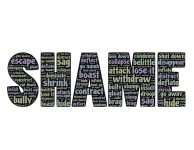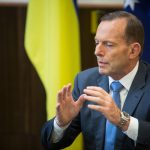Derryn Hinch Uses Parliamentary Privilege to Shame Sex Offenders

Derryn Hinch, former radio shock-jock, self described “Human Headline”, and now a Federal Senator, has in recent days decided he is no longer content with using his “Justice Party” to only push for ill informed and short sighted reforms to bail and parole laws in New South Wales.
Hinch has now taken the extreme step of abusing parliamentary privilege by using his maiden speech as a Federal Senator to “name and shame” convicted sex offenders.
Hinch is no stranger to breaching court suppression orders – having been convicted and imprisoned for doing so in the past. It is the first time, however, Hinch has been able to rely on parliamentary privilege to protect himself from potential criminal prosecution.
Parliamentary privilege is a legal immunity enjoyed by members of the parliament, whereby they are granted protection against civil and criminal liability for actions done or statements made in the course of their parliamentary duties.
Court Suppression Orders
On a very simplistic level, public “naming and shaming” of those who have committed serious crimes might seem just; you might even wonder why the law would even bother to suppress the identity of certain convicted sex offenders.
The short answer is that the primary purpose of these orders is not to protect offenders, but to guard against the re-traumatisation of victims.
In many cases, victims of sexual offences are children, students, colleagues and close friends of the offender. Identifying the offender often risks inadvertently identifying victims – who can be face public judgment and humiliation in the process.
Recognising the importance of protecting victims of crime, the law makes it an offence punishable by imprisonment to breach court suppression orders.
Given Hinch has previously been put behind bars for breaching such orders, he, more than most, understands the serious ramifications of his conduct.
When the “Human Headline” rose to his feet to deliver his maiden parliamentary speech, he was undoubtedly aware that he was protected from prosecution, yet he continued with impunity – completely disregarding the interests of victims – to identify several convicted offenders whose names are currently subject to suppression orders.
Parliamentary Privilege
Parliamentary Privilege is a controversial area of the law, but its fundamental importance is outlined by Austrian Human Rights Lawyer Manfred Nowak:
“Parliament can fulfil its role only if its members enjoy the freedom of expression necessary in order to be able to speak out on behalf of constituents. Members of parliament must be free to seek, receive and impart information and ideas without fear of reprisal. They are therefore generally granted a special status, intended to provide them with the requisite independence: they enjoy parliamentary privilege or parliamentary immunities.”
In this way, parliamentary privilege is a fundamental component of a free and democratic society. It ensures legislators are free to speak their minds and vigorously attack opposing views, free from the fear they might later be subject to civil or criminal litigation.
For example, if a Senator has particular concerns about powerful multinational corporations, parliamentary privilege ensures they can raise and debate those matters in Parliament without fear of later being sued for defamation.
By broadcasting suppressed names, Hinch abused parliamentary privilege to pursue his own headline-grabbing agenda; without concern for the potential effects on those who have already been brave enough to report heinous crimes and go through the criminal justice process. The purpose of the privilege is to create an environment conducive to open and fearless debate and enquiry, not to selfishly grab headlines and garner praise from those who do not understand the purpose behind suppression orders.
The ‘rule of law’ demands that all are treated equally under the law, and that no one is arbitrarily exempt from prosecution. Whilst there is a fundamental need for parliamentary privilege, such immunity should be used in a responsible manner and with regard – not contempt – for the laws of the land.
Hinch did not use parliamentary privilege to carry out his functions as an elected official, but as a way around criminal prosecution for actions he clearly knows are illegal. In this way, and quite paradoxically to his role and duties as a parliamentarian, Hinch erodes the rule of law.
Indeed, it appears Hinch has engaged in opportunistic behaviour under the guise of parliamentary privilege. If he wishes to express the voices of his constituents by advocating for tougher criminal laws or a public sex register, it is his duty as an elected Senator to do so vigorously and responsibly through participation in the legislative process and reasoned debate.
Of course, if he was to conduct himself in such a reasonable fashion he might no longer be known as the “Human Headline”, and could lose appeal with the “tough on crime” constituents who voted for him in the first place.
As Hinch is well-aware of this, it unlikely he will stop abusing parliamentary privilege to further his own selfish agenda.






